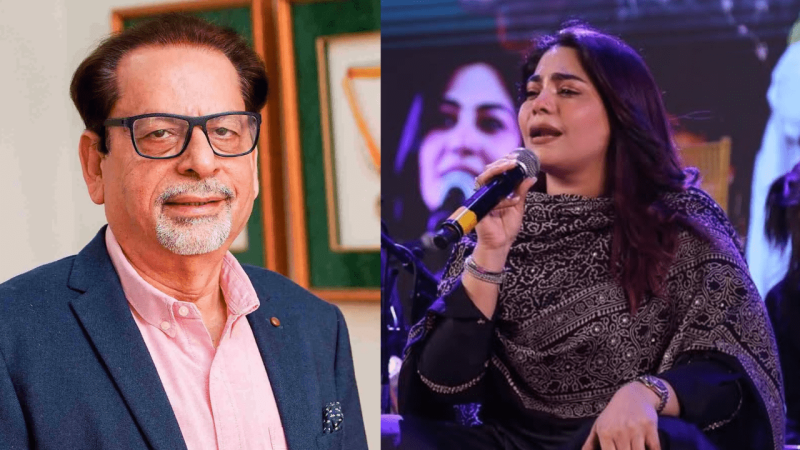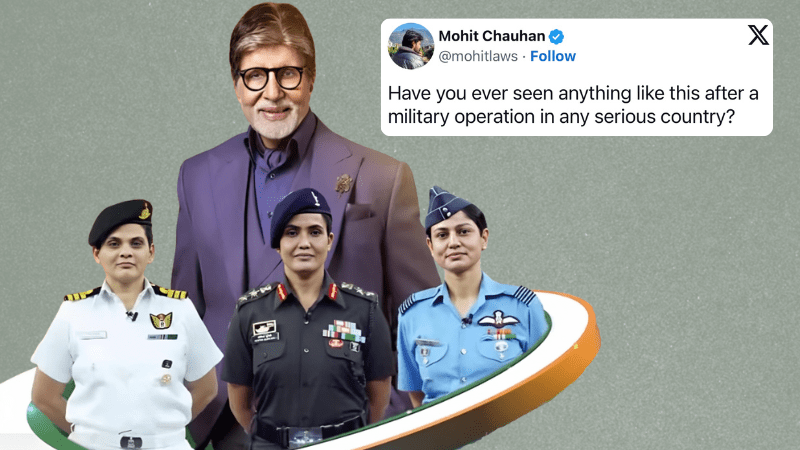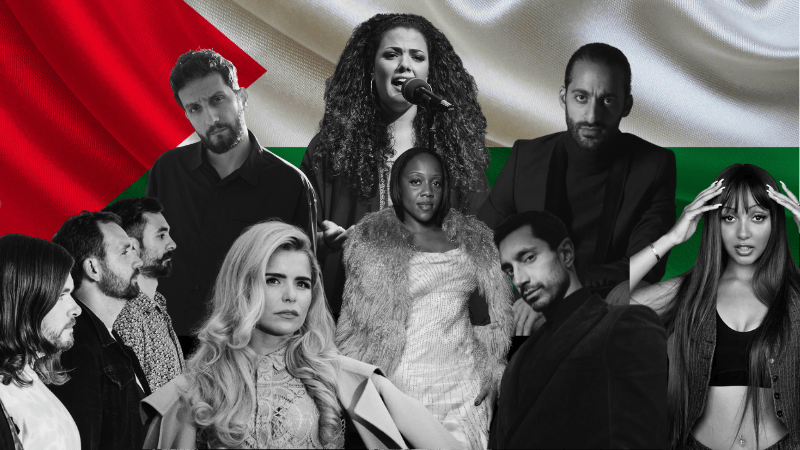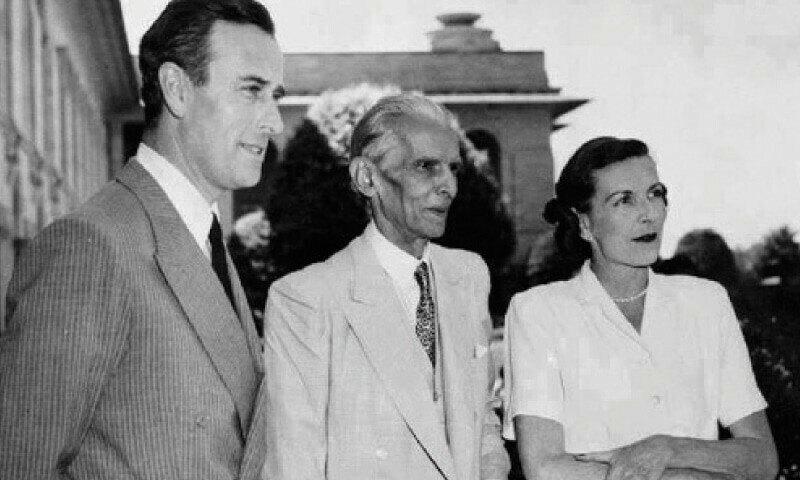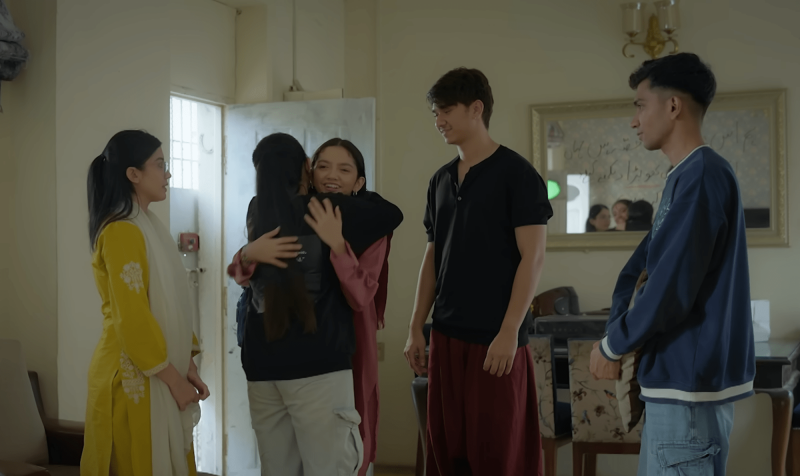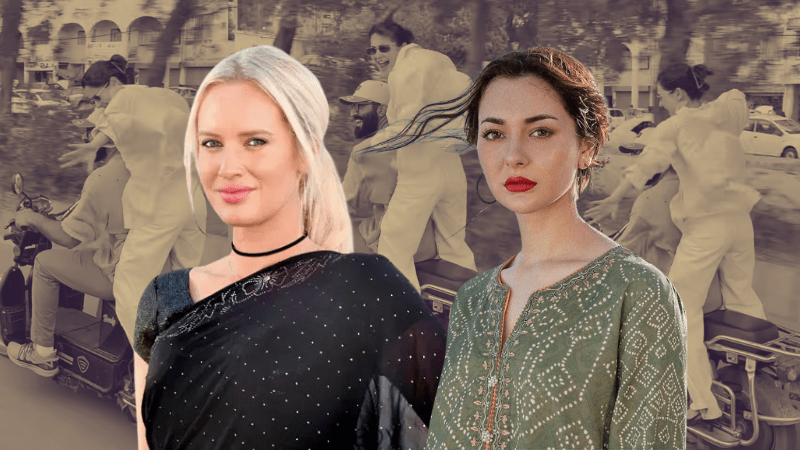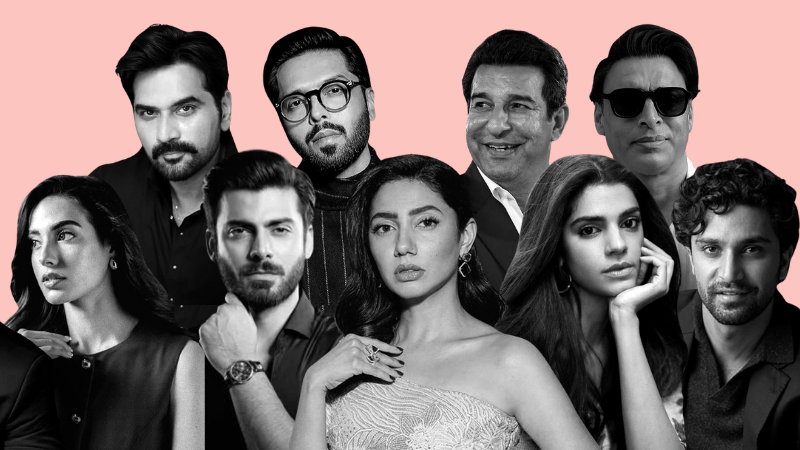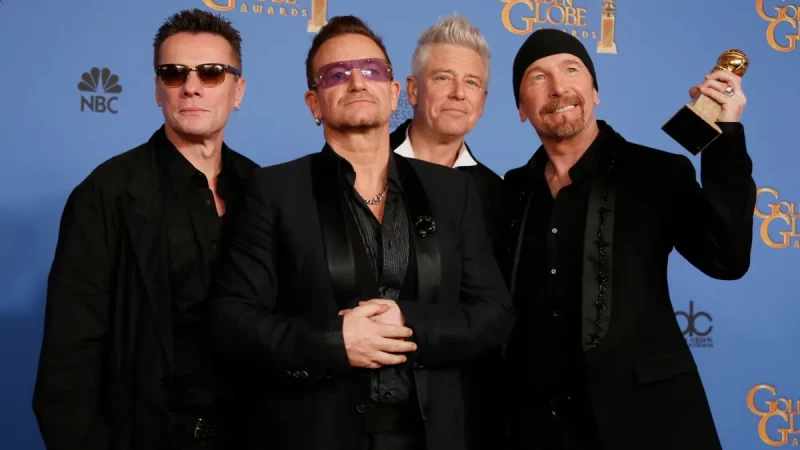Want to make it in the Pakistani entertainment industry? Take Ahsan Khan’s advice and develop thick skin
It’s Sunday night and Ahsan Khan and I have been chatting on Zoom for close to three hours. As the conversation meanders from Khan’s childhood in London to industry politics, it’s easy to see why celebrity guests who appear on Khan’s talk show are so quick to open up to him. Despite being one of Pakistan’s biggest, busiest and most bankable stars, Khan is genuinely curious about others and effortlessly earnest.
“In the beginning, all of this was overwhelming for me,” Khan says, referring to his fame. “But, at a certain point, it’s become normal. Mujhe jo aaj pasand kar raha hai aaj, uske dus aur favorites hogein [the fans who like me today have 10 more favourites]. And, as I age and the work lessens, there’ll be people to replace me. Reality mein live karna chahiye [You must live in reality]. Plus, my wife, parents and siblings keep me grounded and having kids has made me want to become an example. People tell me ‘you’re a star, act like it’ but this is just the way I am.”
Khan says his wife, Fatima Ahsan, has played a major role in making him who he is.

“I have learned a lot from her. Because of her, the good in me has been enhanced. It’s a true partnership. My friends give their wives examples of my wife. She’s always encouraged me and been supportive of me. We’ve been together for 15 years now and I really want people — especially men — to know that having a partner who teaches you things is commendable,” he says.
The couple, who share four children, met as teenagers. While Khan pursued acting, Fatima studied at LUMS and then worked at Packages. The two have basically grown up together and, according to Khan, his wife is both his biggest fan and critic.
“Gharwalon se bohot feedback milta hai [I get a lot of feedback from my family]. Fatima hardly watches Pakistani television but watches my stuff. She’ll be my biggest critic but she will also tell me that I surprise her as an actor. [Fatima] has also had a say in improving my fashion sense. When I look back at earlier outfits I think ‘what was I wearing’. I’ve definitely improved with Fatima’s help and from seeing good style around me,” Khan laughs.
A leading man
Today, Khan is in the second act of a multi-decade career. He started off as a pretty face, run-of-the-mill TV actor but today he’s a critically acclaimed, award-winning star. It may look easy but it’s been anything but.

“My father was on good terms with people like Nadeem saab, Babra Sharif, Mohammed Ali and Zeba. Nusrat Saab performed in our home in London. So, I saw the glamour at a young age. Maybe that planted the seed. But, the first opportunity to actually perform came when I went with my aunt to PTV’s studios. I still remember walking by the recording studios. That day, a play on Kashmir was filming and around 50 people were standing in Kashmiri clothes around the main artists. I asked the director if I could join the group and he gave me one line. At the end of that scene, the director said in front of everyone ‘bhai, tum toh bahot achay ho’ [you’re very good]. As a kid, that gave me so much courage. That was the thing that hooked me, I think,” Khan recalls.
Although he was hooked and ready to rock and roll, the PTV powers-that-be said he was too young and told him to try again in a few years.
“I met [director] Syed Noor Saba and he [said] he didn’t know whether to give me a kid role or an adult role and to come back and see him in two years. Samina Peerzada was also very, very helpful during this time. She told me to stick to television instead of the big screen.”
Khan kept coming back to the PTV studios and, in 1998, this dogged persistence eventually led to a supporting role in the now iconic film Nikaah.
“After Nikaah and Ghar Kab Aao Ge, no [other] offers came immediately. I was at the age where my parents were really pushing me to adopt a career. Even after seeing [me in] films, their response was ‘jaa ke parho [go study]’. I had passed the tests for the armed forces and, during this time, I was trying the hardest I could [to make it]. I was going to producers’ offices saying ‘please consider me’. I’m glad I did this. It was part of my journey,” Khan recalls.

He started off on the big screen around the time that Pakistan’s film industry was in a downward spiral. Going off of the advice of industry heavyweights like Peerzada, Khan decided to pivot to drama serials. And, two decades on, for the most part that’s where he’s stayed. Today, Khan has the luxury of choice — something most actors only dream of.
“I’m forcefully changing my career with age. Around seven years back, I started choosing pivotal roles that were different and [would] help me grow as an actor. You can’t always be the hero. How can you show your audience your talent and satisfy yourself as an actor if you don’t change up your look, your mannerisms and your way of speaking on TV? [For me], aging is great in this field so far because I’m only getting better and better characters,” he says. “I like playing characters. Something different from who I really am. If someone asks me to [do a typical script in which] I play a boy in his 30s who falls in love with a girl, agar koi paisay achay dey raha hai chalo [if someone’s giving a lot of money,] fine I’ll do it. But I’m not enjoying myself.”
While Khan insists there’s no age cap on being the lead, he isn’t impervious to the fact that he’ll have to stop taking on certain roles with age.
“A couple of years ago I did a play called Bandhay Aik Dor Se in which I played a younger version of myself and I felt I was too mature in my mannerisms and appearance for the role. I told the creators I don’t look like a university student so please omit those scenes because I don’t look 24 and I’m not comfortable doing that,” Khan recalls.

“How do you define a hero? Hero-driven stories aren’t only about young love affairs. Look at Clint Eastwood, Liam Neeson, Benedict Cumberbatch and Tom Cruise. They’re doing age-appropriate roles that drive the whole story. And that’s what a hero is. Someone who drives the story. You can make a drama about somebody regardless of their age. The story should suit you, that’s what matters. Playing a boy in his teens getting his degree? I’m sorry, I shouldn’t be doing that. But, romance? That’s ageless. You can be 50, unmarried and looking for love, singing on a pahar, wearing bright kaprey and romancing. That’s okay,” Khan laughs.
Khan tells me that although he was a shy kid, he was a born performer. When the rest of the house would go down for a midday nap, he’d be wide awake, roaming the house in costumes acting out made up stories in front of the mirror. One of his earliest memories is sitting in his mother’s lap as the family drove from England to Pakistan. He remembers his father driving their car onto a ferry at Dover Beach to cross from England to France. He remembers stopping in Iran and Turkey. He credits this road trip for his passion for travel. I ask Khan what — besides family and travel — brings him joy. He talks about his most beloved roles.
“I absolutely loved Alif. Initially, I didn’t expect it to have that big of an impact [on me] and the audiences because I only had 25 to 30 scenes. But, it was a spiritual experience for me. During every scene, I felt the scene. Another play that I like was on women’s education, Meray Humnasheen. It was one of my favorite characters I’ve played. And, of course, Fraud. That was an important message. I know a lot of parents who are pushy when it comes to their daughters’ marriage. All they want is ‘bus ho jaye’. Fraud’s message [gets] at that.”
A sensation
Khan has been at the centre of the industry’s explosion. Today, he’s full of praise and excitement for where things are headed.
“Our style of direction and production quality has changed. Our storylines get criticised but I believe in one thing: TV is one of the only major [forms of] entertainment in Pakistan. What else do we have? It’s TV and going out to eat. Majority of the country is not out there traveling and going on shopping sprees. Jo local awam hai [the local population], they love TV and even internationally our plays are loved,” he says proudly.

“For me, it’s important to become the voice of something. After Udaari [in which Khan played Imtiaz, a child molester], I began speaking on child protection issues and I noticed how impactful my voice can be. [Now], I want to create that awareness and have a positive impact.”
Until this point, I had been reluctant to address the Udaari-sized elephant in the room because I know that in previous interviews, Khan has taken issue with journalists wanting to focus on Udaari when he has spent the years post-Udaari proving that he’s not a one-trick pony. Clearly, Khan has spent a lot of time contemplating Udaari. After all, it’s not easy deciding to play one of Pakistani cinema’s most repulsive, villainous men.
Even though Udaari won him awards and cemented him as one of the country’s top actors, playing Imtiaz cost Khan. In the aftermath, he lost sponsorship deals because brands were unwilling to work with someone who the public viewed so negatively. And then, there was the not-so-small matter of the Imtiaz Bhai meme, which Khan unwittingly reposted leading him to directly clash with the cancel culture police.
He doesn’t shy away from talking about his controversies.
“Someone had tagged me in a meme saying something like ‘Bhaijaan Imtiaz, mujhe Eidi dey do [Brother Imtiaz, give me Eidi]’, which I reposted without overthinking it or having any bad intentions. People began cussing me out using the worst words. I still have screenshots. I remember deleting my post and feeling shocked because my intention hadn’t been bad,” says Khan shaking his head, clearly still shaken by the incident.
In 2022, internet trolls came for Khan once more when an old video from the UK-based Asian Achievement Awards red carpet went viral. In the clip, Khan introduces himself as a “British-Asian actor who lives here and there as well” in a half-baked British accent.
This time Khan was mentally prepared for the internet to have a go at his expense. He not only publicly appreciated the memes of him, he and his sons joined in on the fun when they released an Instagram video of them lip syncing to the original audio.
“You should have thick skin,” shrugs Khan. “I’ve realised that these people don’t know me, don’t know my intentions. Ye log kaun hai [who are these people] who are judging me on the basis of a meme? I’ve realised I have to care about the opinion of people who truly know me and care for me. Not those who feel they can judge me based on a few minutes of having encountered something I’ve said or done [online]. Me saying ‘I live here and there’ isn’t an embarrassment for me. Saying something randomly and being trolled, that’s fine. It’s another way to get popular. But I have not done something morally bad or something I should feel embarrassed about. In our field, we can’t avoid trolls.”
Khan may be able to shrug off the online hate he experiences but he feels a special type of frustration for the way female actors are treated online.
“I feel sorry for the women in my country. Bohot maliciously unko target kiya jata hai [they are targeted very maliciously]. Men get away with a lot of things,” he says.
I take the bait and ask him whether this statement is at all contradictory to his previous actions — in 2019 Khan refused to boycott the Lux Style Awards over its nomination of Ali Zafar — or if he is making a subtle jab at the likes of Feroze Khan, who appeared on Time Out with Ahsan Khan in the summer of 2022 and endorsed polygamy and currently stands accused of domestic abuse by his ex-wife.
“That’s a very relevant question. For us [celebrities] it’s really important to be a voice for the right thing. But if you want to become a voice for something, you must dig deeper to understand what’s going on instead of making an instant judgment. But, if someone doesn’t want to share their view publicly on something, it’s not necessary that they are a bad person. Maybe they don’t want to share their views publicly but that doesn’t mean they aren’t thinking about things,” says Khan.
I ask him whether he thinks the industry has been too complacent by continuing to support men who stand accused of treating women horrendously.
“I realised the impact my voice can have. But not every famous person has to become a spokesperson for every single cause. It should be their choice. We shouldn’t have the mentality where we are always ready to judge others [just because] they are silent,” Khan tells me, making it clear that he’s said all he’s willing to on this topic.
“Social media is like a bazaar. Someone will throw a stone, someone will yell ‘kill them’ while someone will try to save you. If you [put yourself] out there, you will get pushback. So, come to terms with it. Dheet hojao.”






